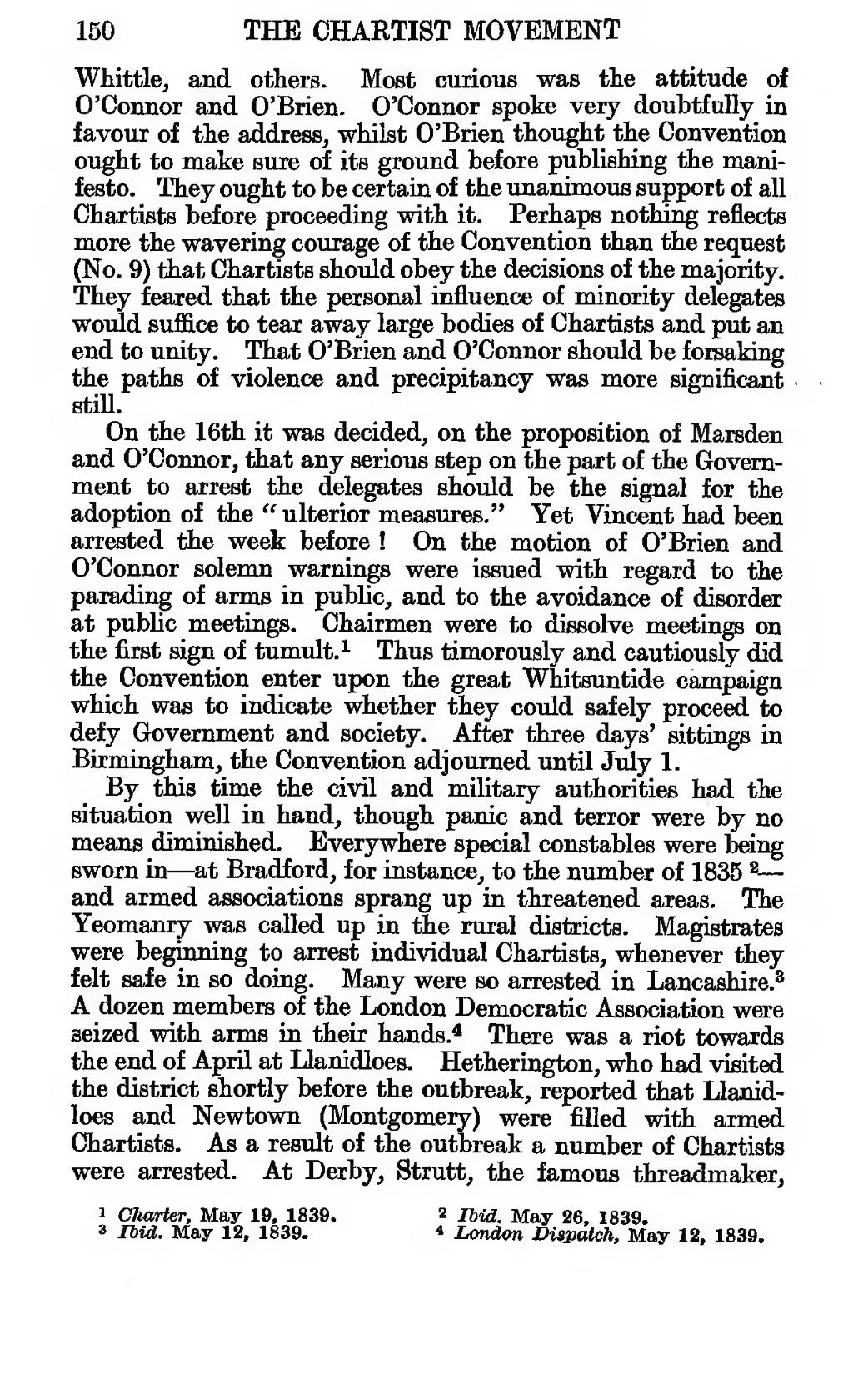Whittle, and others. Most curious was the attitude of O'Connor and O'Brien. O'Connor spoke very doubtfully in favour of the address, whilst O'Brien thought the Convention ought to make sure of its ground before publishing the manifesto. They ought to be certain of the unanimous support of all Chartists before proceeding with it. Perhaps nothing reflects more the wavering courage of the Convention than the request (No. 9) that Chartists should obey the decisions of the majority. They feared that the personal influence of minority delegates would suffice to tear away large bodies of Chartists and put an end to unity. That O'Brien and O'Connor should be forsaking the paths of violence and precipitancy was more significant still.
On the 16th it was decided, on the proposition of Marsden and O'Connor, that any serious step on the part of the Government to arrest the delegates should be the signal for the adoption of the "ulterior measures." Yet Vincent had been arrested the week before! On the motion of O'Brien and O'Connor solemn warnings were issued with regard to the parading of arms in public, and to the avoidance of disorder at public meetings. Chairmen were to dissolve meetings on the first sign of tumult.[1] Thus timorously and cautiously did the Convention enter upon the great Whitsuntide campaign which was to indicate whether they could safely proceed to defy Government and society. After three days' sittings in Birmingham, the Convention adjourned until July 1.
By this time the civil and military authorities had the situation well in hand, though panic and terror were by no means diminished. Everywhere special constables were being sworn in—at Bradford, for instance, to the number of 1835[2]—and armed associations sprang up in threatened areas. The Yeomanry was called up in the rural districts. Magistrates were beginning to arrest individual Chartists, whenever they felt safe in so doing. Many were so arrested in Lancashire.[3] A dozen members of the London Democratic Association were seized with arms in their hands.[4] There was a riot towards the end of April at Llanidloes. Hetherington, who had visited the district shortly before the outbreak, reported that Llanidloes and Newtown (Montgomery) were filled with armed Chartists. As a result of the outbreak a number of Chartists were arrested. At Derby, Strutt, the famous threadmaker,
